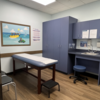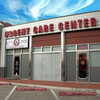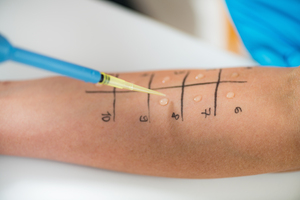Schedule School & Sports Physicals Near Me in Waxahachie, TX
Own a clinic? Add your location.
Help patients book appointments with you on Solv. It's free!
20 instant-book locations

CMed Urgent Care, Midlothian
CMed Urgent Care

NextCare Urgent Care, Desoto - a BSWHealth partner
NextCare Urgent Care

NextCare Urgent Care, Cedar Hill - a BSWHealth partner
NextCare Urgent Care

CMed Urgent Care, Mansfield
CMed Urgent Care

Urgent Care for Kids, Mansfield
Urgent Care for Kids

Little Spurs Pediatric Urgent Care, Grand Prairie
Little Spurs Pediatric Urgent Care

Urgent Care for Kids, Arlington
Urgent Care for Kids

Integrity Urgent Care, Seagoville
Integrity Urgent Care

CMed Urgent Care, Arlington
CMed Urgent Care

Little Spurs Pediatric Urgent Care, Pleasant Grove
Little Spurs Pediatric Urgent Care

NextCare Urgent Care, Arlington - a BSWHealth partner
NextCare Urgent Care

CityDoc Urgent Care, Uptown
CityDoc Urgent Care

Little Spurs Pediatric Urgent, Arlington
Little Spurs Pediatric Urgent

Integrity Urgent Care, Corsicana
Integrity Urgent Care

Citra Urgent Care, Mockingbird/Love Field
Citra Urgent Care

Baylor Scott & White Urgent Care +, Mockingbird
Baylor Scott & White Urgent Care +

Citra Urgent Care, Park Cities
Citra Urgent Care

CityDoc Urgent Care, Inwood Village
CityDoc Urgent Care

Urgentology Care, Viridian Medical Park
Urgentology Care

NextCare Urgent Care, Mesquite - a BSWHealth partner
NextCare Urgent Care
Own a clinic? Add your location.
Help patients book appointments with you on Solv. It's free!
Recent Sports Physicals Reviews (20)
School & Sports Physicals in Waxahachie, TX
School sports physicals are exams used to determine whether teens can participate in sports during the school year. The exam is used by the school to make sure teens are healthy enough to participate in physical sports like basketball, football, soccer, and more. During the exam, your child will be asked about allergies, serious illnesses in the family, illnesses they had when they were younger, and any medicines they're taking. They'll also be asked about any past injuries, previous surgeries or hospitalizations, and whether they've ever had chest pain, passed out, felt dizzy, or had trouble breathing during exercise. Once the medical history is taken, the physical exam starts and the doctor will test their vision, record their height and weight, and take their blood pressure and pulse. They'll also evaluate their flexibility, joints, posture, and strength, as well as check their abdomen, lungs, heart, nose, ears, and throat.
A sports physical is important because it can help you discover and deal with any health problems that could interfere with your child's ability to participate in a sport. It's best to get your child's sports physical done as far in advance as possible before the season begins for the sport they want to participate in.
A sports physical can help you and your doctor decide whether or not it is safe for you or your child to participate in sports. Understanding what happens during a sports physical will assist you in preparing for your appointment and selecting the appropriate practitioner.
What is a sports physical?
The goal of a sports physical, according to the National Institutes of Health, is to identify any health conditions or concerns that could put you at risk for injury, illness, or death when engaging in sports (NIH). Most schools require students to have a sports physical before starting a new academic year or sports season.
According to Texas A&M University, a typical sports physical includes an in-depth discussion of your medical history as well as a physical examination. If your health is in good standing, your doctor will sign the necessary school documents, allowing you to continue participating in your sport of choice. According to the university, if your doctor suspects a medical condition, you may be encouraged to undergo more tests or wear special protective equipment such as a brace while engaging in sports.
Medical history
Your doctor will most likely enquire about your personal and family medical histories during a sports physical.
According to Texas A&M University, the most common family medical history questions revolve around a family history of heart disease and particular cardiac disorders including arrhythmia and Marfan syndrome. Your doctor might also ask if anyone in your family died of heart disease suddenly or young (before the age of 50).
Your doctor may question your personal medical history, such as whether you have asthma or other respiratory problems, headaches, a history of concussion, or if you've ever felt exhausted when exercising. According to Texas A&M University, your doctor may also ask if you've ever been diagnosed with a cardiac murmur.
The purpose of these discussions, according to the university, is to identify any potential health issues that may occur during or as a result of sports participation.
Physical examination
During the physical examination, your vital signs, eyesight, and hearing will all be tested. Heart and lung diseases are among the most common health concerns among doctors who provide sports physicals, according to Texas A&M University. Doctors also check for muscle and joint abnormalities and make sure you don't have any problems with your head, shoulders, back, or knees, according to the University.
According to the University, if you have a history of joint instability or twisted ankles, your doctor may recommend specific strengthening exercises or a change in diet if you are overweight. This is also an excellent time to speak with your doctor about strategies to improve your physical fitness before the start of the sports season.
Why is a sports physical important?
A sports physical is important because it teaches you how to avoid injuries while playing sports and how to conduct specific activities safely if you have a chronic medical condition, according to the National Library of Medicine (NLM).
According to the National Library of Medicine, a sports physical can determine whether you are in good condition, have any present ailments, or were born with any diseases that may increase your risk of injury. Your degree of physical fitness and body maturity are also assessed during a sports physical.
When and where should I go for a sports physical?
Texas A&M University recommends scheduling your sports physical four to eight weeks before the start of the season. This gives your doctor enough time to investigate and respond to any concerns you might have during your initial session. It also gives you more time to see a medical specialist if necessary for treatment of your condition or injury.
A sports physical can be combined with a wellness exam or a well-child visit, according to Texas A&M University. It goes on to add that in some situations, sports physicals can be done on campus at your child's school. Inquire with your doctor about getting a sports physical for yourself or your children.
What if there’s a problem?
If your doctor determines that you or your child has a health or medical concern that prevents you or your child from participating in sports, he or she may work with you to resolve the issue or refer you to a specialist who can. According to Texas A&M University, scheduling your sports physical four to eight weeks before the start of the season gives you adequate time to address and resolve concerns so you may continue with your sport.
Do I still have to get a regular physical?
A sports physical does not replace a regular physical or routine checkup, according to the National Library of Medicine. To be prepared for your appointment, ask your doctor when your next routine physical is due and what might be on the yearly physical exam checklist.
Who needs a sports physical?
According to the National Institutes of Health, schools usually require children and teens who want to participate in sports to have a sports physical before the start of the new school year or sports season. A sports physical may be beneficial if you participate in community sports and activities. Check with your doctor before engaging in any athletic activity to see if you or your child requires a sports physical.
Sports Physicals FAQs
What do they do at a sports physical?
A sports physical usually includes a conversation about your medical history and a physical exam, reports the NLM. The purpose of a sports physical is to identify any potential health problems that may be caused or exacerbated by sports and to treat chronic conditions or injuries that may interfere with certain activities.
Is a sports physical covered by my insurance?
Sports physicals, just like annual physicals, are typically covered by insurance. Check your coverage and book a sports physical today.
Where can I get a sports physical in Waxahachie?
In general, sports physicals are available at Waxahachie-area urgent care centers, retail clinics, primary care doctor offices and school-provided physicians. While walk-in appointments are typically available, booking a visit online will reduce your wait time and ensure your child gets their physical done in time for the start of the season.
How can I book a sports physical in Waxahachie?
If you are looking for a sports physical in Orlando, Solv can help you book an appointment. Simply search for Waxahachie-area doctors, find a provider, and book the most convenient time for you. Be sure to include “sports physical” as your reason for visit.
Can I make a same-day appointment for a sports physical in Orlando?
Tryouts approaching and haven't gotten your child a physical? Never fear. Same-day and next-day appointments for sports physical can easily be booked directly through Solv. Simply search for Orlando-area doctors, find a provider, and book an appointment for a last-minute sports physical as soon as today.
How do I find the top-rated general practitioners in Orlando?
Solv gathers reviews, ratings, and other data on Orlando-area sports physical providers to ensure the clinics provided meet our standards. Search for a clinic, see what previous patients think, and book a sports physical with a top-rated doctor today!
Who should get a sports physical?
Teens who are interested in joining a sport at school will need a sports physical before being allowed to participate.
What if you don’t pass a sports physical?
Texas A&M University notes that if your doctor identifies a problem that could interfere with your health and safety while playing sports, they will work with you to treat and address the problem prior to the sports season, if possible. The University adds that your doctor may suggest wearing a medical device like a brace if needed or refer you to a specialist for further treatment.
What happens at a physical for a woman?
Sports physicals for women are similar to those for men. They are fully physicals, however, women do not undergo a pelvic exam, reports Texas A&M University. The university adds that some female athletes may have eating disorders as a result of not eating enough while staying active and that this factor can affect their menstrual cycles. In these instances, females may talk to their doctors about nutrition and eating habits that can keep them healthy.
What is a physical exam?
During a physical exam, your doctor will study or inspect your body to determine whether or not you have any physical health problems. According to the NLM, a physical test usually includes having your doctor visually inspect your body, feel it with their fingers or hands, and listen to it (such as your heart).

Updated on Jan 25, 2025
Solv has strict sourcing guidelines and relies on peer-reviewed studies, academic research institutions, and medical associations. We avoid using tertiary references.
Related searches
DOT Exam in Waxahachie
Ear Wax Removal in Waxahachie
Physical Exam in Waxahachie
Sports Physicals in Waxahachie
A1C Test in Waxahachie
Allergy Testing in Waxahachie
Basic Metabolic Panel in Waxahachie
Blood Test in Waxahachie
CMP Test in Waxahachie
COVID-19 Antibody Test in Waxahachie
Cholesterol Test in Waxahachie
Diabetes Test in Waxahachie
Drug Test in Waxahachie
Glucose Test in Waxahachie
Hepatitis test in Waxahachie
Mono Test in Waxahachie
RSV Test in Waxahachie
STD Testing in Waxahachie
Strep Test in Waxahachie
TB Test in Waxahachie
Urinalysis in Waxahachie
Vitamin D Test in Waxahachie
Find lab tests
Nearby cities
Everyday Healthcare, Simplified
Expert advice to help you live your best life









